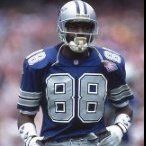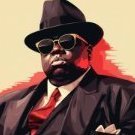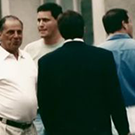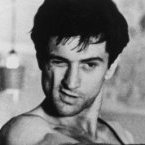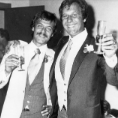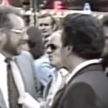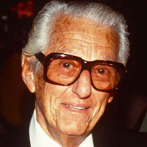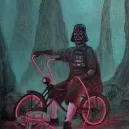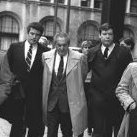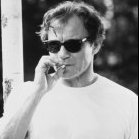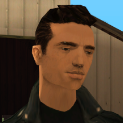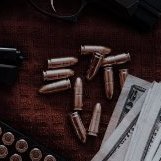Search the Community
Showing results for tags 'lcn'.
-
Ocean Delight Cheeky's Sportsbook Downtown Landlords & Estate A TRUE STORY The thread is following a character called Alec Scavo, that has been through a bumpy ride. After ending his service with the Army National Guard at 23, he moved back to Philly. Alec was in touch with outsiders of a crew associated with a mob in Philly. He got put on record as a bookie for the mob. In fact, he cleaned the office and became the guy running the gig for a few months before making a huge mistake that would end his career and make him cross the country, over to Los Santos. In Los Santos? He became a small time bookie as well. A friend of his father put him on record. A few months went with that, before a Hispanic group of gangbangers broke into his home - robbed all the wagers and profit he had managed to collect. What's next? I'll tell ya... He ducked. When I say duck? I mean digging yourself a hole 5ft9,99 inches under. Time went on, and Scavo had no other option but to crawl back up from the hole and seek help from his father's friend, again. This time? He got put on record as a dope boy. He didn't even have a fuckin' car. In fact he was a scooter dope boy. Fast forward, his vision got clearer and started to understand the principals of the life he wanted to get inducted in. He started to spit out business ideas like a gum-less 90 year old woman spits when she talks. First? He borrowed some capital from another of his father's friends. A so called loan shark, in this life. A lucrative fishing business was formed, and Scavo started doing very well for himself. After a few months, he decided to get back on track with his sportsbook. This time around, he made a proper platform, got people working his book with him, capped the stakes and most importantly - He didn't invite his players home. Especially no Hispanic players, with all due respect. While all of this was happening, Alec thought to himself, "Why not make an estate company? All the fuckin' craftsmen from outta town need a place to crash" so he did. Downtown Landlords & Estate. Renting out apartments to a reasonable price, with a deposit that 90% of the time, somehow got stuck in his pockets and never got returned to the owner? He started to make a really good business for himself. Alec sounds like a fuckin' hero now, doesn't he? But listen... Like a wise man once told him - "It takes years to build up a good reputation, but on the flip side, it doesn't take much time to run it through the mud". On that note? Let's see if Alec can continue on the right path.
-
Joseph "The Trout" Carpino. This thread will follow the story of Joseph Carpino, also known as the TROUT. A young associate of the Clinton Avenue Crew, covering both his personal life and career as a member of an organised criminal enterprise.
- 17 replies
-
- 4
-

-
- clinton avenue
- clinton avenue crew
-
(and 3 more)
Tagged with:
-
- 17 replies
-
- 8
-

-
- la cosa nostra
- profile pictures
-
(and 5 more)
Tagged with:
-
The continuation of the story of Robert Gatto, shelved Bonanno friend of ours. Kudos to Pagano, Brigone, Streetboss, Bellagio and co. for the Agani Car-Theft Ring/Magellan Crew v2 concept and faction.
- 7 replies
-
- 2
-

-
- magellan avenue crew
- lcn
-
(and 1 more)
Tagged with:
-
This thread follows the life and exploits of Joseph Gazzaro. Sit back and enjoy the show.
- 10 replies
-
- 16
-

-

-
- sadcr
- corruption
- (and 15 more)
-
The topic will see the development of Matthew Capanna fifth-generation Italian guy, dedicated to criminal activities such as, armed robbery and drug dealing.
- 30 replies
-
- 13
-

-
- lcn
- italian american
-
(and 5 more)
Tagged with:
-
In 2019, Arthur and Rudolph Moscatello gravitated towards the city of Los Santos, several other members of the Campo Crew, a Philadelphia-based gang joining them for business opportunities, establishing connections in the underground drug trade in the West Coast, specifically Los Santos. Arthur found himself employed at a local construction site, a private company originating in the state of Philadelphia. With each successful maneuver, Arthur's reputation burgeoned within the confines of the satellite crew he joined in Los Santos—a more tight-knit and compact group. However, the tides turned abruptly when Joseph Campo, who was known to be the spearhead of their operations, was apprehended in the early days of December 2020. Campo's arrest sent shockwaves that impacted the very core of the crew, hitting them hard and fast. In the aftermath of Campo's incarceration, a substantial portion of the crew gravitated towards Philip Martorano , who took the reigns of the crew. Due to the external pressure from law enforcement and the unavoidable escalating tensions in the streets of Los Santos, Arthur decided to retreat to the familiar streets of Philadelphia, adopting a low-profile stance. Arthur's return to Los Santos occurred in early 2023. Arthur picked up back where he started, going back to his old ways in construction, keeping a focus on maintaining a low profile and staying out of the grasp of law enforcement.
-
Richard Lovera
- 13 replies
-
- 13
-

-
- lcn
- nappa crew
-
(and 2 more)
Tagged with:
-
Vincent Torelli From Wikipedia, the free encyclopedia Vincent Torelli (born November 19, 1987) is an American reputed mobster, and an associate of the Alderney-based Torelli crime family, currently active in southern San Andreas. Vincent's father James Torelli, Jr. is the reputed boss of the Torelli crime family in Alderney City. Allegedly, Vincent worked closely with the Los Santos-based Martorano crime family. He was associated with captain John "Apples" Aparo in Downtown Los Santos during 2022. Prior to his association to the mafia, Vincent also worked as a business analyst for Faraday Securities Corporation, a stockbroking company on Wall Street in Liberty City, from 2005 until 2014. Vincent currently resides in Paleto Bay, San Andreas with his fiancée and their two children. Biography Vincent James Torelli was born on November 19, 1987 at the Westdyke Memorial Hospital in Alderney City. His father James was the acting boss of the Torelli crime family, and is of Sicilian descent with ancestry in Messina, Eastern Sicily. His mother Rosalie (née Sferra) was a homemaker also of Sicilian descent, with relatives in the commune of Ribera, in Agrigento, Western Sicily. Vincent also has a paternal relation to Western Sicily through his fifth cousin Samuel Cantavespre, who's family came from Bisacquino (only 82 kilometers from Agrigento). Samuel's mother Francesca Longo shared a cousin relation with Liberty City mobster Joe N. Gallo of the Amato crime family. Samuel is also a made member of the Liberty City-based Lombardo crime family, and is currently active in Birmingham, Alabama. Vincent was raised in the affluent Montclair neighborhood in Essex County, and attended Immaculate Conception High School. He graduated with a diploma in 2005, and later attended Vespucci University in Liberty City. He graduated in 2011 with a Master's Degree in Business Analytics. Career From 2005 until 2014, Vincent was employed as a business analyst for Faraday Securities Corporation in Liberty City. He was allegedly terminated in November 2014 due to job outsourcing. Vincent was unemployed from 2014 until July 2021. By mid-2021, he began living in Los Santos, San Andreas. He was employed by the Los Santos Waste Department as a driver and fleet manager until August 2022. According to organized crime researchers, Vincent was also employed as a laborer at Horizon Construction, a mafia-operated firm in Los Santos. According to public records, Vincent was also employed by several Martorano-connected bars and restaurants in Los Santos in 2022. As of July 2023, Vincent owns and operates the Pizza Bar, a restaurant in Paleto Bay, San Andreas. Organized crime history Organized crime researchers believe Vincent's initial involvement with the Italian-American mafia began in 2005, when he was hired by Faraday Securities Corporation. His father James Torelli reputedly used his connections to Wall Street businessmen in Algonquin, Liberty City to secure the position for Vincent. He also could've used extortionary tactics against then-executive Sylvester McCollough, who later died of natural causes in 2010. By 2021, Vincent was active in the criminal underworld of Los Santos. It is believed that during much of 2021 and early 2022, Vincent was associated with Melody Frey, a noted criminal figure and political anarchist active in southern San Andreas. It is believed that Frey was responsible for the importation and distribution of large amounts of fentanyl and cocaine via an importer with ties to the San Andreas government, and that Vincent worked as an enforcer for Frey's organized criminal ring on behalf of the Torelli crime family. By the summer of 2022, Vincent allegedly gained a connection to the locally dominant Martorano crime family, and worked primarily as a drug trafficker for the organization. He was associated to the Downtown crew, through captain John "Apples" Aparo (d. 2023). According to witness testimony, Vincent was also an associate of Rocco DiFiore (d. 2022), Ronald DiFiore (d. 2022), and Dominic Civella, the latter of which was indicted in April 2023 for racketeering and embezzlement. As of July 2023, Vincent maintains a loose connection to the mafia presence in southern San Andreas, reputedly working as a representative of the Alderney mafia. He conducts business from the Pizza Bar, a restaurant in rural Paleto Bay. References 1. ^ Black Hand Forum (needs citation) 2. ^ u/Wdstrvx (June 19, 2023). "James Torelli blood relatives c. 2023 ". reddit.com/r/mafia 3. ^ Capeci, Jerry (January 12, 2021). "The Torelli Crime Family - Is It Dead?". Gangland News. 4. ^ Stevens, Garry (November 4, 2004). "The Liberty Mafia - 50 Years After Its Heyday". The Empire Times. 5. ^ (August 27, 2013). "The Sopranos In Real Life - The True Story of the Alderney Mafia". Stonefield Productions. 6. ^ (December 11, 2022). "Bio: James Torelli, Jr.". lcnbios.blogspot.com 7. ^ [23GJCR00173] People of the State of San Andreas v. Dominic Civella
- 20 replies
-
- 6
-

-
- paleto bay
- italian-american
- (and 9 more)
-
"You are the way and the wayfarers. And when one of you falls down, he falls for those behind him, a caution against the stumbling stone. Aye, and he falls for those ahead of him, who, though faster and surer of foot, yet removed not the stumbling stone." - Kahlil Gibran, The Prophet THE STORY SO FAR... "Birth." Alderney City. 1987. Vincent James Torelli was born into a household wrought with moral decay, veiled under secrecy and fear. His family's involvement in the North Alderney cosa nostra was kept hidden during Vince's early years. He was a child of the nineties, and the RICO predicates had delivered a clear and blistering blow to his grandfather James. It was obvious to those who experienced it that the golden years of the American mafia were over; shot dead suddenly and buried shallow, in the event that one day it could be dug up once more to produce forth its stink upon those who come upon its rotted cadaver. It wasn't brought up at the dinner table. It wasn't ever mentioned directly. The mafia was like an inherited, genetic disease for many in the Torelli household. Like a diagnosis of cancer, it was more a solemn, pitiful truth than the status of pride and arrogance it was less than ten years prior. Vince wasn't lied to when he was curious. He knew his grandfather was in prison on RICO indictments. He knew his father was connected. However, he never asked directly. He never took it as a thing of pride, yet he never took it as a thing to be fearful of. It was part of him, and as he aged he simply lived with it. "College." Columbia University, Liberty City. 2005. Vince ascended into the Ivy League, no doubt thanks to his father's many "friends" in Liberty City. Life was looking up for the young Vince, despite it not going in the direction he had hoped. Dreaming his entire life of being an astronomer, he dared not challenge his father's wishes for him to eventually work among the many millionaires of Wall Street. Come what may, Vince knew that with his girlfriend Abigail by his side, nothing could stop him from success. By late-2005 Vince was secured a full time position at Faraday Securities Corporation, located high up within 100 Wall Street. As he progressed through university, so did his portfolio. Married in 2007. A father to a daughter and a son in 2008. A Master of Business Analytics in 2011. Torelli's family thrived in North Caldwell. He drove an Albany V-STR. He was successful, but he was unhappy. He wasn't an astronomer. "Security." Wall Street. 2014. Rumors swirled in early 2014 about outsourcing. Faraday Securities Corporation was in turbulence. Vince started developing alcoholism, brought on in part by his hereditary double-genetic tendency for it. He'd spend many lonely nights zoned out in the Carpe Diem bar in Berchem. His wife was less concerned with wealth and more concerned with his happiness. He didn't belong where he was. He wanted to move to North Yankton. He never did. By August, Vince's position was targeted in the outsourcing layoffs. Cheaper analytical staff could be found overseas. By November, Vince was bleeding money. His wife was disgusted with him. He knew he was about to lose everything, as he sat within a house he could no longer afford. "Loss." Alderney City. 2016. Vince had sold most of his assets to afford those he actually kept. However, after a night of arguing with Abigail, the act of throwing a wine glass at her was justification enough for her to file for divorce and win with flying colors. Alcoholism. Domestic abuse. Marijuana usage. To the jury, Vince was a bad husband and an even worse father. A danger to himself and obviously to his own children. By 2017, all that was left in Vince's life was a Kanjo SJ and enough willpower to work odd jobs to satisfy his lust for whiskey. "Freelancer." Alcoholics Anonymous. 2021. A wealthy sponsor in Vince's AA group signed him up for a two-month long furlough in a rehab facility in the sunny city of Los Santos. On a bus bound for the land of milk and honey, he arrived one late summer's night in 2021 and immediately went to work as a garbage hauler for a company based out of El Burro. Many lonely nights were spent as the sole driver of a route from El Burro to Del Perro, idolizing the rich and successful members of Los Santos' high society. Clad in a polyester weatherproof poncho and beaten up jeans, Vince swore to himself that one day he would be like them. After several cases of harassment on the job, Vince acquired a gun from a man named Tyrone during a chance encounter at the Pacific Standard bank. Vince was robbed of the gun shortly after. Knowing he couldn't turn to the police, Vince embraced, in his small pathetic way, his status as a criminal. As the weeks rolled on, Vince became less concerned with sobriety and more concerned with survival. He eventually stopped showing up to the AA meetings altogether, instead opting to drive up to Paleto Bay. In Paleto, Vince met a mysterious figure by the name of 'David', who showed Vince how to grow marijuana in several public growing spots up north. Vince also met a lady named Charlie Bankshot, who would go on to show him the gang politics of the county. Many times, he was robbed at gunpoint by redneck gangsters. Vince later added to his trade the art of car theft, breaking into the parking lot of a mechanic shop in Paleto Bay and stealing cars right from under their noses. This is how he first wound up in Twin Towers. Vince knew the risk far outweighed the reward, and if he were to make any money he'd need to join an organization. By chance, he met a man named Christoph Wellerman. A suit-donning and clean shaven fellow, Wellerman had an aura of leadership about him as he rambled on subtly about crime. Vince was determined to work for Wellerman. "The Underground." Del Perro Pier. October 2021. In early October 2021, a cancer awareness gala was held on the Del Perro pier. Vince picked up a random hitchhiker and the two set off to the event. Upon arrival, it was filled to the brim with individuals wearing pink. On the far side of the pier was Wellerman, Charlie and a mysterious lady in pink camouflage. This lady would come to be known as Melody Frey, the leader of an anarchist organization known simply as The Underground. Seeking employment, Vince began to work for this group, which identified itself with pink clothes and cars. Vince's first murder committed for The Underground was that of a clown on the eve of Halloween. As he sat on the sands of Vespucci Beach cutting up the clown with a bowie knife, Torelli knew that his choice to enter into this life was permanent. Later that month, Vince and David were mugged in Paleto. Vince was shot at three times with a .50 pistol. The rounds were deflected by the car's metal, which sent shrapnels of lead, glass and metal deep into Vince's skull. By the time the doctors removed it from his frontal lobe, they concluded that enough had already seeped into Vince's blood to blind him. They also said that what couldn't be removed would lead to his own death from lead poisoning in a maximum of three years. Torelli's next few weeks were spent committing petty crimes, or chasing after the daughters of Misha McQueen with his friend and co-member, Sean O'Malley. Misha was actually the woman who inspired Vince to initially leave The Underground, as she told him of the moral corruption of Melody and her apathy towards her own members. Vincent left The Underground a few weeks later. Initially wanting to join Marcus Falcone's crew of Italian-American heist men from Liberty City, he opted instead to join a loose crew of Mexicans from Jamestown Street. They robbed stores, chopped cars and eventually targeted Melody. By mid-December the crew was in tatters, and it was obvious to Vince that he made the wrong choice. He sold them out to Melody, in exchange for forgiveness. "Grace." Del Perro. January 2022. Vince's life was back on track. He was earning regularly with The Underground. He still lacked a basic human component to survival - companionship. Vince encountered Grace Adams, who joined The Underground during Vince's hiatus. By chance, the two fell for each other during a night of sightseeing at the Kortz Center on a chilly winter's night, January 28th. For the next several weeks, the couple lived together in Del Perro. They'd spend their days fishing at the pier, getting high from hippie kush. Grace was a 27-year old widow from Arizona, who worked as a car mechanic in Los Santos. Eventually, an FBI investigation into the kidnapping and murder of a prison guard by The Underground forced Vince and Grace to leave the group. Instead of laying low, Vince was contacted by his father James Jr., and tasked with establishing a crew of Italian-American burglars based on Bay City Avenue, on behalf of Alderney City. He did this, recruiting mob associates Benjamin Benito and his brother Joseph, as well as Vincent Bozzi. Other associates included Misha McQueen, Diego Gonzel and Samuel Spade. In mid-March, as the Torelli Crew prospered, Vince proposed to Grace on the Chumash pier. The short-lived crew was eventually disbanded for unknown reasons, with several members absorbed back into The Underground, including Vince and Grace. Even within The Underground, Vince wasn't making enough money to support himself and his habits. Grace was making far more money working as an executive mechanic, and she repeatedly bought him cars and fancy clothes, leading to ridicule from members of The Underground. The pair moved into a condo in Eclipse Towers. Vince was still a lowly street thug, barely making enough to pay for the week's food. On April 11th, the couple separated and Vince was kicked out of the apartment. Alone again, Vince was broken and without a tribe. He couldn't stay in The Underground for as long as Grace was there. He had to find a new home. "Benny Diamonds." Mission Row. May 2022. Vince's initial time directly after the breakup was either spent in bars, or in the Richman Hotel as he stalked Grace online. Fate would blow in Vince's favor when he entered into Damiani's Diamonds and Fine Jewelry one late-May afternoon, the 7th. He had a chance encounter with a man named Benjamin Ruggieri, who quickly inducted him into a shadowy Italian-American community. He was introduced to a man named Samuel Villione and was tasked with chopping cars. The next few months were spent slowly working his way up the borgata's food chain. Members of the family would come and go. Benny Diamonds was shot twice in the head, as John Aparo came to take his place. Death became an accepted part of his new lifestyle... the Tarano crew... the DiFiore brothers... even a random bloke named Raymond Cirillo, whom Vince murdered with Brandon Conradina and Rocco DiFiore, one starry July night. "Chloe." Pillbox Hill. July 2022. Vince received a call late one night from a girl he happened to meet outside the Pharaoh beauty shop. Her name was Chloe Hill. She was out of friends and she wanted one. The two soon bonded, before they found themselves in love. Much like Grace, the two became closest when sharing their troubles with life. However, unlike Grace, Vince and Chloe shared solidarity in the fact that they were ill. Chloe - a PHMC-diagnosed schizophrenic with early-onset Parkinson's who had been in Pillbox's psych ward countless times... and Vince - a depressive, sociopathic loner with lead poisoning and frequent strokes. Vince and Chloe's affection for each other was unconditional. The two became engaged on July 31st. Vince stole Chloe's engagement ring from Damiani's. It was around this time they also went on a week-long trip to Liberty City on a sightseeing tour. During the trip, Vincent also made contact with an old Faraday associate who could help him with a phantom billing scheme in LS. "On Record." Mission Row. August 2022. Vince was put on record into the Martorano crime family by John Aparo on August 6th. Chloe was impregnated by Vince that same day. On August 7th, Chloe was taken from Vince's life in the middle of the night by men in white jumpsuits. She was taken to a psychiatric facility in upstate Flint County, San Andreas. Vince was once again alone in his day to day life. His thirty-fifth birthday approached quickly. He was broke, and he needed to make money. He continued to work with the Martorano crime family for the next several months, primarily as a bartender at Goldie's or making an attempt at a phantom billing scam through Horizon Construction, LLC. "Chloe, Part II." Flint County. September 2022. The days dragged on for Vince as he maintained his role in the Mission Row borgata. Regular weekly trips were made to the Flint County Psychiatric Facility, where he would visit Chloe and witness the abuse she would sustain at the hands of the orderlies. It wasn't her first time in a psych ward, having spent long months in Pillbox Hill and Mount Zonah. However, Chloe's unique illness of claiming to recall "past lives" attracted the attention of a Eurasian organized crime group who's leader, Nikolai Kalinov, shared the same disease. Together with a cabal of elite arms-dealers known only as "La Fuente Blanca", they kept Chloe prisoner in the ward, eventually attempting to murder Vince when he got too close. He survived a nearly-fatal stabbing from Kalinov himself, ending up in the San Fierro Medical Center. "The Maccaviti." San Fierro. October 2022. As Vince laid either in a comatose state, or so paralyzed that he required assistance to take a shit, he longed for his days on Mission Row. It was evident the first week that he was stripped from his whole life he built for himself and Chloe in Los Santos... he was stuck in the small, cramped hospital due to Nikolai Kalinov's attack. However, while Vince rotted away in the hospital, Chloe had found new friends in an equally powerful and secretive organization of private counter-terrorists with a focus on extra-sensory perception (ESP), of which they believed Chloe to be a possessor. This group was known as "The Maccaviti." They had the resources to not only bust Chloe out of the hospital, but also her daughter Layla who was trapped in a foster home in Los Santos. They also rescued Vince from San Fierro, taking the family to a shelter in the Queens district. In return, Chloe would be recruited into The Maccaviti to hunt Kalinov. On October 30th, the plan was set into motion. Simultaneously, and initiated by shortwave radio signal, three teams converged on the psychiatric hospital, the foster home and the San Fierro Medical Center, freeing Chloe, Layla and Vince. Originally wanting to go to Liberty City, their plans changed... their new identities would be in Paleto Bay. "The Maccaviti, Part II." Paleto Bay. November 2022. In November 2022, The Maccaviti "disappeared" Vince, Chloe and Layla to a small apartment in Paleto Bay, giving them new identities, clothes, cars and livelihoods. It's as if the answer to every gangster's proverbial prayer - the ability to walk away - had struck Vince and his family in an incredible display of luck. However, with the rebirth of the Martorano crime family in Los Santos, as well as Vince's close contact with an old Cuban-Mexican friend of his, how long Vince and Chloe could maintain their act was uncertain... though several altercations happened with John Aparo's men, Vince and his family remained untouched in Paleto. Their daughter, Olivia Marie Hill, was born on January 3rd, 2023. "A Quiet Life." Paleto Bay. April 2023. Today, Vincent, Chloe, Layla and Olivia live outside of a two-bedroom apartment unit in Paleto Bay. Chloe works as a stay-at-home mom, spending her days attempting to improve her own mental health, all the while making an attempt to be a mother to Layla and Olivia. Vincent works odd jobs, often moonlighting in the service industry and making extra cash selling small amounts of pot to his close associate network. Long gone are the glorious days of life in the American Mafia as he lives a quiet existence in the county, spending most of his free time with his family. Despite the otherwise normal and stable condition of the Torelli household, the threat of Kalinov and the return of The Maccaviti lingers over their heads. It's like a muffled, ever-present tension that refuses to release itself. With each passing day, life grows more comfortable... something potentially detrimental if those unseen forces ever came back into their lives.
- 40 replies
-
- 6
-

-

-
- italian-american
- paleto bay
-
(and 4 more)
Tagged with:
-
Henry Stelli From Wikipedia, the free encyclopedia Henry Martino Stelli (born November 14, 1997) is a reputed American mobster in Los Santos, San Andreas. Henry is an associate of the Philadelphia crime family, via member John Amendola, in Vespucci Beach. According to organized crime investigators, Henry has been active in the Vespucci neighborhood of Los Santos, as part of a loosely-knit crew of mob-affiliated criminals on the corner of Bay City Avenue and Aguja Street. Biography Henry Stelli was born in 1997 in Messina, Sicily, to Angelina Stelli. His father remains unknown, but was allegedly an associate of a chapter of Sicilian Cosa Nostra in eastern Sicily who had an extramarital affair with Angelina. Shortly after Henry was born, he and his mother moved to America, possibly coerced by his father. The family settled in upstate Liberty State, near Albany. Henry grew up in Troy, Liberty State near the corner of 4th and Ferry Streets, commonly considered the "Little Italy" of the Albany-Schenectady-Troy Metropolitan Area, having a large Italian-American presence even into the 21st century. Henry commonly associated with local petty criminals during his high school years, specializing in internet scams. In 2014, Henry became associated to Matthew "Matty" Catalano, a Philadelphia-based gangster. Soon after graduating high school, Henry moved to South Philadelphia to pursue a criminal career with Matthew. He was quickly introduced to other associates of Matthew, including John and Victor Amendola, Frank Cascone and Dominick Attardo. Starting in 2018, several members and associates of the Philadelphia family under John Amendola began moving out west to southern San Andreas. The Philadelphia crime family has historically maintained a large presence in San Andreas, especially through Philip Martorano, a former Philadelphia member who led the Martorano crime family until his death in late 2022. Henry arrived in Los Santos in 2018, where he was quick to ingrain himself into the city's criminal underworld. By 2020, Henry had made a name for himself as a marijuana dealer, working primarily with African-American gangsters from the south side. It is believed that Henry is still active in Los Santos as of 2023. Allegedly, he maintains an association to the La Cosa Nostra presence on Aguja Street, earning money through drug trafficking, auto theft and extortion. The Amendola Crew While the Martorano family's strongholds historically include Mission Row on the corner of Sinner Street and Vespucci Avenue, and Vespucci Beach on Bay City Avenue, Henry Stelli and other Amendola associates were primarily active on Aguja Street. The Aguja Street mobsters have maintained a unique identity, and their existence dates as far back as the late-1980s and 1990s, when a crew of the Philadelphia family existed out of the Silver Stallion bar, including now-retired mobsters such as Raymond Sciandra, Victor DiFarina and the recently deceased Benjamin "Benny Venturas" Carneglia, a prominent west coast casino magnate. It is believed that for a brief period of time in the early 2020s, the Amendola Crew was considered under the umbrella of Martorano's organization. However, following the coup against former Martorano boss John "Apples" Aparo by Paul Longo, the family fell into disarray and the Amendola Crew became an independent entity again. References 1. ^ Black Hand Forum (needs citation) 2. ^ Capeci, Jerry (October 14, 2019). "The West Coast Mob Today". Gangland News. 3. ^ u/Wdstrvx (April 21, 2023). "Pics of the Aguja St. Crew, a Philly cell in LS ". reddit.com/r/mafia
- 11 replies
-
- 3
-

-
- lcn
- la cosa nostra
- (and 6 more)
-
"Mafia is a process, not a thing. Mafia is a form of clan-cooperation to which its individual members pledge lifelong loyalty. Friendship, connections, family ties, trust, loyalty and obedience... this was the glue that held us together." - Joseph Bonanno Screenshots by subway244. (These screenshots are OOC unless otherwise stated.)
-
I honestly have no idea why there's such a stigma against LCN RP these days from the illegal community. Italian mob RP has been around since forever, it's probably the oldest RP'd concept since the earliest days of GTA Roleplay. It's one of the only established roleplay subcommunities that has stayed relatively the same since as far back as the mid-to-late 2000s. There's a lot, and I mean A LOT of people who'd still realistically RP the Italian mob and WANT to, but can't because there's apparently some kind of hatred toward it, by what appears to be only a minority within the illegal scene. The biggest argument I see from people is how "IRL, the mob's presence on the west coast is super small." I'm not arguing that we should turn Los Santos into New York, but there's a reason we RP in a fictional city/universe as opposed to real life Los Angeles. The fictional boundaries of the location enable you to pursue concepts like LCN without 100% adhering to how Los Angeles is IRL. The whole fun of roleplay is escapism, and it's kind of a shift away from good storytelling and more a shift toward Eclipse-ism when OOC considerations come before IC creativity. It's undemocratic and frankly authoritarian, and all it's gonna do is lead to shit-tier RP and further sink the illegal scene into mediocrity. I've been part of servers where what happens IC is policed to the extent where the boundary between In Character and Out Of Character is blurred. It gets to the point where it stops feeling like RP storytelling, and starts feeling like some overly-realistic MMORPG, and it's not fun. It's not what GTAW should be, when we're supposed to be an example to people who's only "RP" experience comes from Eclipse/FiveM. I might sound like a cranky old man, but it's the truth. If people really don't like LCN so much, let them fight it out ICly. In the meantime, if ICly the entirety of New York decides to flock west to set up shop in Los Santos, it should be allowed to happen within the fictional timeline we portray. We're supposed to be creating a simulated fictional city/storyline, not a simulated Los Angeles. Me and a lot of other people view GTAW as really nothing more than meticulously detailed, collaborative worldbuilding. Los Santos is ours to mold and shape, and that extends to the people who find it fun to portray La Cosa Nostra - which like I said, is a big demographic. The same people who claim LCN is unrealistic should also point their fingers at Sinaloan narcotrafficking cells with cowboy hats and body armor, or Russian mobs portrayed like a bratva from Brighton Beach in the 90s. I love all three, and I think they should all be given an equal opportunity to exist ICly - but if only one gets banned on the grounds of "realism", the other two should be as well.
-
The West Coast Contingent From Wikipedia, the free encyclopedia The Martorano Crime Family was an Italian-American criminal organization with majority control over the West Coast as part of the American mafia and now presumed defunct. The family was founded by Philip Martorano after the merger between two splinter groups of the Philadelphia and Colombo crime families. Since 2023, due to the arrests and internal strife, the Borgata is presumed extinct with a smaller breakaway entity of remaining members still involved in criminal activities within Los Santos. The source for much of the current information on the history of the Los Santos Cosa Nostra family is the courtroom testimony of Ernest “Ernie” Savona, who in the 2000s became the first member - and the first inducted member in Los Santos - in West Coast, American mafia history to testify against its members. Throughout the late-2000s, the Martorano Crime Family entered several internal and external wars over control of the city. Without the strong concentration of Italian-Americans in the region meant the Borgata had to contend with the many street gangs of other ethnicities in the city which would lead to many arrests, wars, and the future destruction of the organization. History The Colombo and Philadelphia Connection A connection between the Philadelphia Crime Family and the Los Santos area was apparent after the arrival of captain Joseph Campo and inducted soldier Phillip Martorano. According to Conti turncoat, Lawrence Zampa, although the region was under the jurisdiction of the Conti Crime Family both were permitted to operate in the area, away from the north of Los Santos, and conduct their enterprises. However, after the arrests for illicit firearms trafficking Campo was incarcerated and the Philadelphia Connection disappeared into obscurity. Dominic “Donnie Shacks” Montemanaro, a long-time Colombo captain, relocated to the West Coast during the 1990s. Montemanaro desired to semi-retire but keep his interests in the movie industry, gambling, and pornography. A minor faction within Montemarano’s Bayside crew was transferred to East Los Santos, including two key figures Angelo Sisca and Paul Longo who began operating out of Sisca’s brother-in-law’s social club, Sabella’s, near Mirror Park. In light of an increase in Cosa Nostra activity within the San Andreas state, a Philiadephia-Colombo partnership was created to protect and align the interests of the core families in the north. After the passing of Montemanaro in 2021, a merger was proposed by a semi-retired Colombo captain, Carmine Lupo, who orchestrated the new Borgata. Together with Philip Martorano, Sisca, and Longo a new West Coast crime family was founded. Sisca’s responsibilities involved labor racketeering in construction and longshore unions, most notably Labour 66, while Longo continued operating the reminiscence of Montemarano’s activities and giving birth to the Downtown crew. The Martorano Golden Era After the Colombo and Philadelphia factions merger, Philip Martorano became boss and appointed Nathaniel Agro as underboss and Angelo Sisca as his consigliere. While the family operated two crews out of key areas, one spearheaded in Vespucci by Michael Ciofalo and the continuation of Dominic Montemanaro’s crew in Downtown by Paul Longo. Longo also expanded the family rackets into prostitution through Golden Girls, later renamed Sweet Passion, under Ronald “Moe Chameleon” Ganisa. This period is often referred to as the Golden Era of Martorano, boasting a West Coast record of over twenty active made members and an estimated hundred associates. In the testimony of Ernest Savona, he claimed that through the Lucky Goose bar, Longo’s Downtown crew was involved in several white-collar schemes, illicit gambling, prostitution, and weekly hijackings of imported dock items through Sisca’s connections to the union. Savona’s testimony also alludes to the crew being involved in murder-for-hire operations through Russell Gagliano. While the Bay Avenue crew primarily focused on card skimming and a gasoline racket, as well as having their hands in many legitimate entertainment businesses. In October 2021, Sabella’s was raided by law enforcement officers after a wiretap caught Ernest Savona murdering a young associate, Anthony Limone. Both Robert Bonfigilio and Ronald Ganisa were caught at the scene by Miles Morgan, a detective within the Los Santos police department. Longo and Savona were later arrested after being picked up in a Sandy Shores motel. Several news sources, most notably the Los Santos News Network, reported on the murder which became a constant in the news cycle within San Andreas. Longo, Bonfigilio, and Ganisa were all released with charges of conspiracy to murder, much lighter than the original charges of first-degree. This was likely due to mounting public pressure on the DA through Victoria Miller who published articles supporting the trio. A public protest with over one hundred attendees stormed the courts for the later release of Savona. An investigation by Morgan would reveal that Miller was on Longo’s payroll. Sisca grew increasingly frustrated at being the third-in-command to Agro over his supposed incompetence. Sisca regarded Agro to Longo as a “clueless ape” and wiretaps indicated Agro was commonly referred to as The Ape by Martorano soldiers within the Downtown crew. A prominent reason for his distaste was due to Agro’s desire to eliminate Longo because he accepted the plea deal without Martorano’s approval. Sisca’s boundless greediness may also have been the cause of his desire to ascend the hierarchy. After Agro’s disappearance, Agro-loyalist and captain Michael Ciofalo would flee San Andreas leaving Anthony “Tony Suits” Trupiano to lead the Bay Avenue crew who also had troubles with Agro. With Trupiano’s promotion, notable Bay Ave figures such as James Provenzano, Dominick Garfaci, and Frank “Fingers” Ida were inducted into the organization. However, Trupiano’s leadership was short-lived due to his withering health and the pressure of investigations across the Borgata. He was replaced by Daniel “The Arab” Bechara who would oversee the rise of the crew to greater prominence within the family with Garfaci managing most day-to-day operations. The Chinese War and Leading Indictments Martorano became locked into an underworld conflict with a Chinese organized crime group led by Wuying “Raymond” Meng. The reason behind the escalations was due to the evergrowing influence of Longo’s crew over the Mission Row area and the exertion of Sisca’s control over the Port of Los Santos. Several other escalations led to the full-scale war, notably an encounter after Chinese thugs stormed Robert Bonfigilo’s bar on Sinner Street. Further, another incident includes Longo passing a debt to Meng owed by one of his members who ran Longo’s Cypress Hills bar, the Long Haul. These escalations came to a boiling point when months later, Sisca was having coffee at a teahouse in Chinatown. Meng and his accomplice opened fire on Sisca from behind, nearly killing the newly promoted underboss. Sisca was hit once in the arm. This triggered a response from the Longo crew who put the teahouse to the torch and murdered many members of the Chinese group. No murders were recorded from the Martoranos and at the height of the war, Savona’s testimony would refer to Ronald Ganisa as “Ronnie Two Guns” as he and Jimmy “Chin” Bazzoli would carry two guns with them everywhere they went. The battle between the opposing factions came to a halt on March 20th, 2021 when Ernest Savona was arrested in a black car close to the Red Piano, a mob hangout for the Bay Avenue crew, together with Martin “Magic Marty” Pisano and Joseph “JC” Calarco. Savona was arrested and charged with attempted murder and later cooperated with the authorities, leading to the Martorano indictments. Unbeknownst to the Martorano family, detectives had been building a case around the Mission Row contingent. Several key figureheads were arrested such as Angelo Sisca, Ronald Ganisa, William Iovino, Russell Gagliano, Joseph Calarco, James Provenzano, Jimmy Bazzoli, and Ralph Sciandra, a figurehead for the Bay Ave crew with close ties to Longo. After the arrests, Paul Longo fled Los Santos to avoid incarceration. The Los Santos Police Department was enabled to add a plethora of extra charges because of Ernest Savona’s additional testimony. The bulk of the indictment was around accusations of racketeering, and bribery of police officials primarily due to Longo’s relationship with Alan Aplin of whom he was paid by Ganisa-prostitutes and several charges of first-degree murder. Across the indictees, the majority were represented by a team of mob lawyers spearheaded by Omar Ortiz. The court had dropped the bulk of murder charges due to insufficient evidence. The court was only able to establish Ganisa’s involvement in pandering and being the leader of a prostitution ring. However, the evidence of an organized crime family was established by detectives due to Calarco taking a plea deal on racketeering which was sufficient enough to charge the group. Calarco was pressured by his lawyer to take the plea as he was not represented by Ortiz. The case was seen as a failure for law enforcement and a win for organized crime as the majority, bar Ganisa and Bazzoli, were released after 1-year of incarceration. The Eurasian Organized Crime War The Eurasian Organized Crime War started over ever-increasing tension between the Serbian conglomerate and the overarching crime group led by Armenians. Their conflict began after several shootings were reported in East Vinewood. Philip Martorano had close ties and relations with the Serbian organized crime group and rallied in their support which in turn led to Meng’s Chinese faction joining in an attempt to take back control of Downtown in opposition against the Martoranos. These events would lead to the biggest underground warin San Andreas history with a reported two hundred criminal members taking arms and over fifty deaths. Martorano entered the conflict after the storming of Armenian Power street members in Vinewood’s notorious strip club, Hornbills. Call recordings and CCTV show Ronald Ganisa calling the police and fleeing the scene in which three Armenians were shot down by law enforcement. Ganisa was shot twice in the arm and omitted to Los Santos General Hospital and meet his fate when a masked, Chinese gunman would later enter the premises in the early hours of the morning and shoot down Ganisa. After months of shootings and chaos, escalations reached their height after a team of Jewish hitmen, spearheaded by David Mizhari met a squad of Martorano members in Pacific Bluffs. Eleven people were recorded dead on the scene including notable Martorano inductees Frank Ida, Ralph Sciandra, and Dominick Garfaci. James Provenzano was seen fleeing the scene with gun wounds and was later assassinated days later. Two Mizhari brothers were found dead as well as the remaining Jewish party of six. Wuying Meng was recorded as fleeing the country after a coup attempt on his life by a long-time loyalist, Wu Yau. Law enforcement believe that the attempted murder was orchestrated by Martin Pisano after call recordings alluded to the murder, but there was not enough evidence to charge Pisano. Pisano was later arrested on unrelated charges. This attempted murder was seen as a pivotal part of the Martorano-ETOC war as the Chinese were left without their leader and pivoted away from the conflict. The war shortly concluded with Martoranos being seen as the victors, though with consequences. Many Martorano-made members were killed and arrested which would be one of the catalysts for Philip Martorano’s retirement and the installation of Angelo Sisca as the new figurehead of the Borgata. The Era of Lazy Eye Angelo Sisca, who reportedly wore sunglasses during the day to mask his lazy eye, took over leadership of the Martorano Crime Family after the ill health of Philip Martorano. Sisca’s administration was built off new school members with Harvey Apa as Underboss, John Artese as captain of the Bay Ave crew, and long-serving inductee Joseph Calarco as leader of the Downtown crew. Sisca took the Martoranos into a new era focusing the organization’s activity on legitimate enterprises such as construction, labor unions, and residential property development. Sisca notably added an additional crew into the Martoranos who historically only operated with two. Joseph Tarano, a New Jersey Crime Family captain, merged with Sisca’s regime which brought the Borgata back to the forefront of Los Santos organized crime. The Tarano crew would often butt heads with other Martorano members at the disdain of Sisca who would grow increasingly tired of his antics. The situation would take a turn for the worse as Tarano conspired behind Sisca’s back to topple his new regime with Calarco. Unbeknownst to Tarano, Calarco alerted Sisca who ordered the deaths of the Tarano crew. On the eve of May 22nd, 2022, Martorano associates murdered Tarano in a parking lot in Vespucci. Tarano loyalists gathered together in a backroom apartment and were ambushed by Martorano members, sixteen Taranos were killed and Artese was found dead in an alleyway nearby. The Borgata went into a period of quietness to avoid mounting law enforcement scrutiny after the Tarano war. Now without an administration, Sisca absorbed the last reminiscence of Conti Crime Family buttons and would later take a step back from day-to-day operations leaving a ruling panel led by Frank Palma and Roy Falazarano. Current Position and Leadership Sisca’s retirement, the death of Philip Martorano due to heart conditions and waning recruitment within the Martorano Crime Family meant that most operations are now defunct and the Los Santos Police Department considers the organization dissolved. As recent of 2023, John “Apples” Aparo, the supposed leader of the Martorano splinter group was murdered in Rockford Hills. Shortly after Paul Longo, alongside long-term loyalists such as Martin Pisano, Russell Gagliano, Robert Bonfiglio and historic Bay Ave soldier Vincent DeFuria have all returned to Los Santos. Longo has been seen at Goldie’s (renamed from the Lucky Goose) with Robert “Doc” Satriano, a Philip Martorano loyalist. References https://forum.gta.world/en/topic/53748-ap-los-santos-pacific-bluffs-shootout-leaves-11-dead/ https://forum.gta.world/en/topic/42136-lsnn-italian-american-stands-accused-of-first-degree-murder-in-limone-trial-coworkers-allege-da-discimination/page/3/#comment-398543 https://forum.gta.world/en/topic/42207-lscdao-press-release-07-district-attorney-response-to-discrimination-allegations https://forum.gta.world/en/topic/41819-lsnn-limones-murder-three-men-convicted-of-second-degree-murder-conspiracy-through-a-plea-deal/#comment-394510 https://forum.gta.world/en/topic/42898-lsnn-lifestyle-news-sala-the-maestro-bolo-42-wins-fight-night-at-the-sweathouse-gym/#comment-408238 https://forum.gta.world/en/topic/49660-lsnn-ronald-g-released-on-parole-ive-been-framed-typical-anti-italian-discrimination-says-ronald-g-outrageous-attempt-to-associate-him-with-lcn-says-his-attorney/#comment-501547 https://forum.gta.world/en/topic/55570-lsnn-another-successful-lssd-operation-major-crimes-bureau-interrupts-lsnn-live-program-and-arrests-martin-pisano-sheriff-washington-due-to-his-dangerous-and-violent-nature-we-were-forced-to-take-action/#comment-576109
-
-
Paul Longo is a soldier in the Colombo crime family (NYC) though operates in Los Santos, under capo regime Dominic Montemarano. His operations span out of Sabella's social club (Mirror Park) and his rackets primarily focus on murder-for-hire, armed robbery and loan-sharking. Paul Longo was born and raised in Brooklyn, New York to an underworld associated father and a stay-at-home mother. He was described as a relatively mediocre student but with a talent for sports, in particular ice hockey. Although it served him well in the hockey ring, Longo's overaggressive attitude and haste to solving issues with his fists led to an early high school exit and no college scholarship to the dismay of his mother. Longo had a job as an errand boy for local grocery owned by friend of his father and mafia inductee, Thomas Capelli. Under Capelli, Paul would begin regularly selling stolen cigarettes and liquor to his high school friends. It was here he would catch the attention of two integral players in his career of organized crime, Dominic Montemarano and Angelo Sisca. After the internal Colombo war, Montemarano proved to be on the winning side as a loyalist to Carmine Persico. It was here he would form his own crew in Los Angeles, taking Longo and Sisca across to the West Coast. It was in Los Angeles that Longo would receive his first criminal conviction for first degree assault. On the eve of the new millennia, Longo, Irishman Lenoard Collins and Colombo associates Louis Sabella and Robert Mazzari, were arrested by police for assaulting a local African-American drug dealer in Mirror Park. Collins, Mazzari and Sabella were sentenced to a year as no weapons were found on their persons, unlike Longo who was found in possession of a bat leading to three years incarceration. It is unsure as to when Longo received his knighthood in the Colombo organization. However, mafia experts believe it to be around the time of his release. And ever since his leave from prison, the Montemarano crew have flown under the radar, dabbling in low level criminal activities to avoid attention of federal agents. However, recent increases in organized crime in the West Coast, in particular the growth of a satellite crew from the Philadelphia crime family has seen Longo's resurgence. On January 22nd, Longo's long time mentor and capo, Dominic Montemarano, passed away due to a foreign flu. During his last few years, Montemarano had semi-retired in the Vinewood Hills leaving the day-to-day operations for both Longo and Sisca. Unbeknownst to Montemarano, the duo had been in long term discussions with Carroll Street through influential ex-Colombo captain, Carmine Lupo, regarding a merger between Philip Martorano's Philadelphia satellite crew. The demands from Carroll Street were straight forward: one of either Longo or Sisca must be on the panel of the newly formed borgata and 15% of all illicit earnings be returned to New York's hands. Sisca was brought forward to Martorano as his new consiglierie with Longo now taking role of capo regime in the newly formed family's Downtown crew. Unfortunately for Longo, these plans were put on halt after the murder of Anthony Limone, an associate of Longo's, slain for his disrespect of inducted Colombo member, Ernest Savona. Both Savona and Longo were arrested for the shooting alongside the clean up crew, Ronald Ganisa and Robert Bonfiglio. The latter three were offered an unrefusable plea by the District Attorney's LS office - Conspiracy of Second Degree Murder and six months incarcerastion with Savona choosing to stand trial, citing a lack of evidence. The news story of the trios' plea deal spiraled out of control with popular Los Santos News Network (LSNN) journalist, Victoria Miller, airing the story on primetime television. However, unknown to the newly formed crime family on the West Coast, Longo developed devious sexual relations with Miller and used her to damage the reputation of the DA's office claiming discrimination toward the Italian-American community. Miller revealed her undoubtable loyalty to Longo, feinting on television to avoid reading a statement to the article by the DA's office. As a result of Miller's media storm, on the 3rd January a march of over 30 stormed the courts demanding the release of Ernest Savona, orchestrated by the puppeteers behind the scenes, Longo and Sisca. (Thank you to the @The Dirty Dukefor your help with the formatting and layout. After a six month hiatus from the game, Paul Longo will be my new character going forward. This story will share personal character development, as well as screenshots from the The Philadelphia Connection faction thread.)
- 169 replies
-
- 25
-

-
Stanley Giancana; Diamonds Giancana, or "The Little guy" a former Las Venturas based gangster making his bones in Los Santos. Hitler wears Hermès =Speak of the devil, and he appears!” ((This character story begins when development has already occured.))
- 9 replies
-
- gangster
- ivy league
-
(and 1 more)
Tagged with:
-
Michael John "Little Apples" Aparo August 30th, 1992 - February 7th, 2023 Michael grew up in Mission Row, the son of John Aparo, leader of the now functionally dead Martorano crime family, and former caporegime of the neighborhood. His childhood was marked with violence and fear, living under constant pressure and growing up in the racially turbulent Mission Row district, where Italians and Chinese vied for power over the streets of downtown Los Santos. Michael grew up relatively shielded from the life of La Cosa Nostra, staying a civilian and pursuing a pre-med program at ULSA. However, growing up in the younger, Italian fourth-generation alongside the likes of Thomas Galli and Anthony Falco, his father's life was still an ever-present figure in Michael's childhood. In 2022, following several high profile indictments, departures and an overall decline of the activity of the Mission Row family, especially after the death of founder Philip Martorano and the retirement of Angelo Sisca, the FBI considered the organization functionally defunct. In an effort to preserve the family business, Michael decided to help his father, dropping out of university to enter the life of La Cosa Nostra. Today, the streets are quiet, and gone are the days not too long ago, when wiseguys were everywhere. Italians, especially ones connected to LCN, are few and far between... but they're there, nonetheless. Perhaps Aparo can make an attempt to revive, or at least keep alive, whatever faint heartbeat of the American Mafia still lives on in Los Santos... or die trying. This was the story of Michael Aparo - Little Apples. He was executed by his own family on February 7th, 2023. (Screenshot credits: GhostJCW)
- 12 replies
-
- 5
-

-
- la cosa nostra
- lcn
-
(and 2 more)
Tagged with:
-
https://www.youtube.com/watch?v=gp5JCrSXkJY&list=PLCGcelpRfnj6NvkwlP1SD15Dlu6N-MvIj&index=3 Name: Angel Marsini D.O.B: 12/09/1998 P.O.B: New York City, NY Angel Marsini, born in New York City, was a hired assailant in various crimes involving multiple organizations, including that of the Colombo Crime Family, as well as a small faction of Armenian-based terrorists. His current location is unknown, due to cut ties with said Colombo Family due to internal affairs. His criminal activity spanned from vandalism to first-degree murder, with several years of prison time under his belt. Angel was born in Brooklyn, New York to both a loving father and mother, although later on the skeletons in their closets would be revealed to their son. Angel was a roughneck child, who loved to work and be active. He was on various sports teams from his middle school years to his high school years, earning multiple awards and titles as of it. But with the good, came the bad, as Angel was more or less a “kingpin” in school, in which he involved himself in the contribution of Cannabis, or more vaguely known to people as Marijuana or “Weed”, as well as the contraband of it as well, within school walls. On multiple occasions did Angel get caught in the act, but he cared little, as he was also moving it outside of school as well. His supplier was a member of the Colombo Crime Family, although this business wasn’t of the Colombo Family’s, as this unknown member was using this as a side-business to stack cash for other situations. Angel would receive 35% of whatever he had gotten from selling, giving the 65% to this stranger. During the latter years of his High School career, both his mother and father would have overdosed on Methamphetamine, due to years of usage whilst caring for Angel. After eventually graduating from High-School, Angel was losing stock in this Marijuana business, in which his supplier was already planning for, as later on, he would be introduced to the art and trade of racketeering. Angel at the age of 20, took charge, alongside other members of the Colombo Family, of a small faction of the ILA Union. A few months later though, various members of the family were arrested and charged on various crimes, but the latter of them being charged in Labor-Racketeering. Angel however wasn’t caught, as the day this bust had happened, Angel was upstate on a “mission” from the Colombo Family, in which he was to apprehend files from a buyer of unknown origin, or atleast to Angel. It was revealed soon that this unknown group was a small group of Armenian terrorists, which acquired files from a larger organization that has ties with La Cosa Nostra. After Retrieving these said files, Angel would return to Brooklyn, hearing news beforehand of the bust, in which he would pack his things and leave New York City, heading towards Los Santos, in which he would stay to lie low for some time, hearing of other members of the Colombo family in Angelo Sisca Jr. and Paul Longo were already there, each with their own operations as well. As for Angel, this meant starting from scratch, but nothing he hasn’t done beforehand. As of now, no one knows of Angel’s whereabouts, although more than likely, he is heading directly to Los Santos to lay low, but for now, it is unknown.
-
La Cosa Nostra (LCN) is the name federal investigators gave to the organized crime phenomenon typically known as the "American Mafia." In Italian, it means "this thing of ours", signifying its tradition of secrecy and tight lipped membership - a total denial to the outside world of its activities and existence. Upon initiation into one of the sects of the organization, known as "families", members swear an oath to uphold a code of secrecy, known as "Omertà." These values and way of life is, in essence, not dissimilar from its representation in popular media - an extreme emphasis on honor, family and discipline; in work, at home or in the custody of law enforcement. However, gone are the days of the mafia portrayed in "The Godfather" and "GoodFellas" - macho wiseguys in suits, with rivers of money and influence in all corners of society. That time is passed, dead and buried, as the old blood who once held the fate of southern San Andreas' criminal underworld in their hands retire, or face indictment. The "glory days" of the mob have been succeeded by its bastardized son - a shriveling, scared and decaying husk of a system long past its prime. The "city of saints" was once considered the western breadbasket of many families, including the Kansas City crime family's now-defunct crew in Vinewood, spearheaded by Peter Conti, and the Philadelphia family's crew in Downtown L.S., led by Philip Martorano. Today, the city's criminal underworld is little more than a wasteland of biker gangs and skinheads, to the public eye. However, the organization founded by Martorano, which eventually grew to gain independence from the east, still lives on in Los Santos' Mission Row district, albeit in tatters. A Row Tale The Mission Row crime family, also known as the Martorano crime family, was formed in the early-2020s, the result of a union between the Philadelphia family's L.S. crew led by Philip Martorano, and Colombo soldier Angelo Sisca. While their roots in the world of the American Mafia extend decades into the past, it was this alliance that led to what became Los Santos' mafia powerhouse. At its peak, the FBI suggests Martorano's organization had its fingers across the entire city, stretching as far north as Vinewood, as far west as Vespucci, and as far south as the city's port. "When you talk about true power in the L.S. criminal scene, you talk about Martorano. There ain't a thing you can name, that they didn't have some kinda interest in. MMA, sports betting, prostitution, slinging drugs, guns... running bars, casinos, across the whole state. They were in the ports, in the construction industry... hell, I even heard a few of them had interests in insurance and medical fraud. Unions, politicians, the government of the city itself. People wanna talk about Vinewood as being Rome? Hell no. They were just a province. Caesar sleeps in Mission Row." - Dr. Douglas Caruso, San Fierro FBI researcher The power of the Martorano organization came to a decline in the summer of 2022, however. A civil war erupted between the crew led by Joseph Tarano and loyalists to then-boss Angelo Sisca, which culminated in a bloody shootout on May 23rd in Vinewood. Furthermore, tensions between the Bay City Avenue crew and Mission Row led to constant suspicion of one another among the lower ranks. This is also atop much infighting and a rash of mob whacks, including the murder of informant Ronald DiFiore by his brother Rocco, and eventually Rocco himself by unknown assailants in prison, as well as the slaying of Joseph Martinelli in Paleto Bay and the disappearance of Raymond Cirillo, all of which the FBI believe soldiers Brandon Conradina and Dominic Civella, as well as associate Vincent "The Suit" Torelli to be involved. The Fall of Rome Atop the string of homicides in the late-summer months of 2022, came a wave of retirements, including many of the old-timers of the organization - boss Angelo Sisca, longtime captains Frank Palma and Robert Satriano, and soldiers John "Apples" Aparo, Anthony "Big Tony" Fiorentino, Samuel Marotta and Jacob Barbieri. Coupled with the death of Philip Martorano, the organization collapsed as, allegedly, the two crews scrambled to conglomerate and carry on their activities. A power vacuum was created. For a short time, the organization was led by John Aparo, who later retired and appointed Jacob Barbieri as his de facto successor. However, following the retirement of Barbieri himself, the organization fully collapsed and fell into a comatose state. In November 2022, however, activity in the Mission Row district picked up again, following the ascension to power from Aparo's son, Michael - also known as "Little Apples." Michael could be considered part of the "yuppie gangster" generation, belonging to the same fold of young thugs such as Anthony Falco, Tommy Galli and Troy Gattuso. Michael entered into a pre-med program at ULSA, before suddenly dropping out after a semester to acquire further tutoring from his father, in the methods and lifestyle of LCN. Considered by many on the streets to be the de facto leader of the organization, he was allegedly given the blessing by Jacob Barbieri to continue his father's legacy in Mission Row. The Next Generation Today, the remnants of the Martorano crime family can be seen in Mission Row, particularly in the Goldie's bar on the corner of Vespucci Avenue and Sinner Street - a historically Italian-American part of Downtown Los Santos. Among his alleged associates include Salvatore Bertolini, a former Liberty City-based gangster and associate of Vincent Torelli and his father, and old-timer Samuel Marotta, who served as the closest ally to John Aparo during the Sisca era. Aparo, Marotta and Bertolini can frequently be seen coming in and out of Goldie's. The word on the street is that the Los Santos LCN's finest hour is still far in the future, but as for whether or not Aparo's venture will survive, only time will tell.
- 45 replies
-
- 11
-

-

-
- la cosa nostra
- lcn
-
(and 1 more)
Tagged with:

